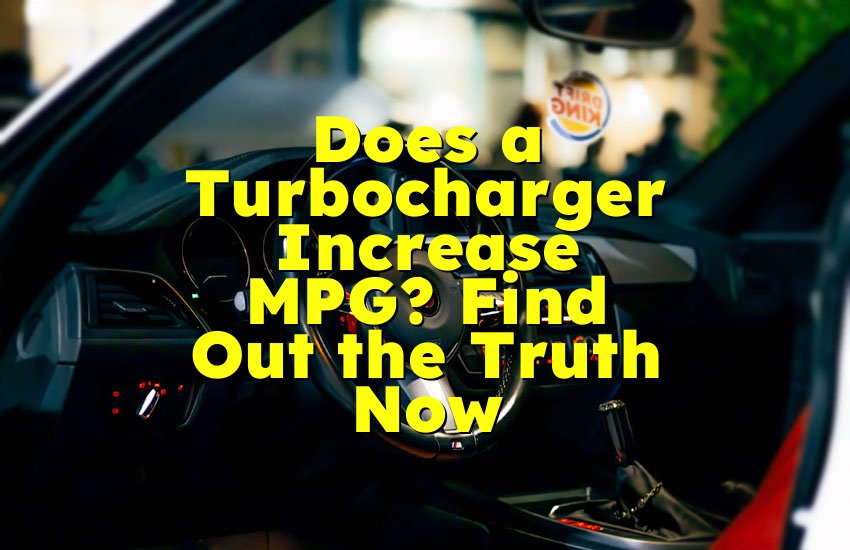As an Amazon Associate, I earn from qualifying purchases at no extra cost to you.
Car Hesitates When Accelerating at 40 MPH: Fix It Fast
You're driving on the highway, cruising at 40 mph, and suddenly your car feels like it's stuck in slow motion. The engine struggles, you press the gas harder, but nothing happens. It's frustrating, scary even. You wonder if it's the fuel, the engine, or something worse. Most people ignore this, hoping it goes away. But hesitation at this speed can damage your car and cost a lot. Let's talk about why it happens and how to fix it fast.
Why Your Car Hesitates at 40 MPH and How to Solve It
Check the Fuel System
When your car hesitates at 40 mph, one of the first places to look is the fuel system. Fuel problems are very common, and they can cause sudden power loss. If your fuel filter is clogged, the engine cannot get enough fuel to keep running smoothly. A dirty fuel injector can also block the fuel flow, making acceleration uneven.
Most modern cars have fuel pumps that push gasoline from the tank to the engine. Over time, pumps can wear out or fail. If the pump cannot maintain pressure, the car hesitates when you step on the gas. Fuel issues are often subtle at first. You may notice a small stutter before full hesitation.
Cleaning or replacing the fuel filter is usually inexpensive and simple. You can also use fuel injector cleaner to help improve flow. If the fuel pump is failing, it needs professional replacement. Regular fuel system maintenance prevents hesitation and keeps your engine healthy.
- Inspect fuel filter for dirt or clog.
- Check fuel pump pressure.
- Clean or replace fuel injectors.
- Avoid cheap gasoline that can cause deposits.
Examine the Ignition System
The ignition system is another major cause of hesitation at 40 mph. Spark plugs are the tiny components that ignite the fuel in your engine. If they are worn or dirty, combustion will be weak. This results in slow acceleration or jerky movement.
Ignition coils deliver electricity to the spark plugs. When a coil fails, it can cause a misfire at a specific speed or load. Worn spark plug wires can also reduce power delivery. Modern cars often have sensors that detect misfires, but sometimes the check engine light doesn't come on right away.
Replacing spark plugs is simple and usually inexpensive. Coils should be tested with a multimeter or replaced if worn. Regular ignition maintenance ensures smooth acceleration and reliable engine performance. Poor ignition not only causes hesitation but can also increase fuel consumption.
- Inspect spark plugs for wear or carbon build-up.
- Check ignition coils and wires.
- Replace any faulty components.
- Maintain regular ignition checks every 30,000 miles.
Inspect the Air Intake and Filter
Your car needs clean air to burn fuel properly. If the air filter is dirty, airflow is restricted, and the engine struggles. This can cause hesitation around 40 mph when the engine needs more power. A clogged intake hose or a dirty throttle body also limits air supply.
Air filters are cheap and easy to replace. It's recommended to check them every 12,000 miles or more often in dusty areas. The throttle body sometimes collects grime, reducing airflow. Cleaning it with a proper cleaner can restore smooth acceleration.
An air intake problem is often easy to fix. You may notice improved throttle response immediately after replacing or cleaning components. This prevents long-term engine damage caused by running too rich or too lean.
- Check air filter condition.
- Inspect intake hoses for cracks or blockage.
- Clean throttle body if dirty.
- Ensure proper airflow to the engine.
Look for Transmission Issues
Sometimes hesitation is not the engine's fault but the transmission. Automatic transmissions may slip or hesitate when shifting gears. Manual transmissions may have clutch problems that affect acceleration.
Transmission fluid plays a huge role. Low or dirty fluid can cause hesitation and jerky movement. Transmission solenoids control gear changes, and if they fail, acceleration can be inconsistent. In older vehicles, worn gears or bands may also create hesitation.
Checking transmission fluid level and condition is a first step. If fluid is dark or smells burnt, a change is needed. Professional diagnosis may be required for deeper transmission issues. Ignoring these problems can lead to expensive repairs later.
- Inspect transmission fluid level and condition.
- Check for delayed or rough shifting.
- Test drive for slippage or unusual noises.
- Consult a professional if problems persist.
Examine the Exhaust System
The exhaust system affects engine performance and can cause hesitation. A clogged catalytic converter restricts exhaust flow, making acceleration hard at certain speeds. Exhaust leaks or damaged sensors can also confuse the engine's computer.
Catalytic converters can get blocked over time, especially if the engine burns oil or runs rich. Oxygen sensors monitor exhaust gases and adjust fuel injection. If sensors fail, the engine may hesitate because it gets incorrect fuel-air ratio data.
Replacing a clogged converter or faulty sensor restores engine power. Regular inspections prevent serious damage. A healthy exhaust system improves fuel economy, reduces emissions, and keeps the car responsive.
- Check for exhaust leaks.
- Test oxygen sensors and catalytic converter.
- Replace damaged components.
- Maintain regular exhaust system checks.
Scan for Engine Sensors and Computer Issues
Modern cars rely on sensors to manage fuel, air, and timing. If a sensor fails, the engine can hesitate, especially at mid-range speeds like 40 mph. Common sensors include the mass airflow sensor, throttle position sensor, and engine coolant sensor.
The engine control unit (ECU) reads these sensors to adjust fuel and spark timing. If data is wrong, hesitation occurs. A simple diagnostic scan can reveal error codes. Some issues may not trigger a check engine light immediately.
Replacing or cleaning faulty sensors often fixes hesitation. Some sensors can be cleaned, while others must be replaced. Keeping the ECU and sensors healthy ensures smooth acceleration and better fuel efficiency.
- Scan for error codes using an OBD-II scanner.
- Inspect mass airflow, throttle, and coolant sensors.
- Replace or clean faulty sensors.
- Keep ECU software updated if needed.
| Problem Area | Common Cause | Quick Fix | When to See a Professional |
|---|---|---|---|
| Fuel System | Clogged filter, failing pump | Replace filter, clean injectors | Pump replacement if pressure low |
| Ignition | Worn spark plugs, faulty coil | Replace plugs and coils | Persistent misfire needs expert check |
| Air Intake | Dirty filter, clogged throttle | Replace filter, clean throttle | Major airflow issues need technician |
| Transmission | Low fluid, solenoid issues | Check fluid, professional diagnosis | Slipping or rough shifting |
| Exhaust System | Clogged catalytic, sensor issues | Replace converter, sensor | Persistent power loss |
| Engine Sensors/Computer | Faulty sensor, ECU error | Scan codes, replace or clean sensor | ECU programming or sensor replacement |
Do Hesitation Problems Always Mean Engine Trouble?
Not always. Sometimes hesitation is simple and easy to fix. Fuel or air filters are cheap and quick. Ignition problems like spark plugs wear out over time. Transmission or sensor issues may be more serious.
Cars hesitate for many reasons, and age plays a role. Older cars may have clogged components, worn wiring, or dirty sensors. Newer cars rely heavily on electronics. A small sensor problem can cause hesitation without other symptoms.
Many drivers panic, thinking it's catastrophic. In most cases, proper diagnosis and repair fix the problem fast. Ignoring hesitation can worsen fuel efficiency and engine health. Regular maintenance is key to avoiding major repairs.
- Hesitation can be minor or major.
- Regular maintenance prevents most issues.
- Electronic problems may appear before mechanical failures.
- Proper checkups keep your car reliable.
Can Dirty Fuel Cause Hesitation at 40 MPH?
Yes. Dirty fuel is a major cause. Gasoline can contain dirt, water, or old fuel residue. These particles clog injectors, filters, and even fuel pumps. Engines then struggle to get the fuel they need, causing hesitation.
Using poor-quality fuel reduces engine performance. Some additives in gasoline can leave deposits over time. If your car hesitates only around certain speeds, clogged injectors are often the culprit. Cleaning injectors or replacing filters usually restores smooth power.
Fuel system cleaners help prevent buildup, but regular maintenance is best. Keep your tank above a quarter full to avoid sediment at the bottom. Using high-quality fuel prevents hesitation and keeps the engine running longer.
- Avoid old or contaminated gasoline.
- Use fuel injector cleaner periodically.
- Replace fuel filter as recommended.
- Maintain proper fuel levels.
Do Transmission Problems Cause Hesitation Only at 40 MPH?
Transmission issues can show at specific speeds. At 40 mph, the car may be shifting gears or under load. Automatic transmissions can slip or hesitate due to low fluid or worn components.
Manual cars may hesitate if the clutch slips or engagement is uneven. Drivers may feel the car struggle or jerk forward. Proper transmission fluid level and quality is essential. Dirty fluid reduces performance and damages internal parts.
Some transmission solenoids fail intermittently. This creates hesitation at mid-range speeds. Diagnosing transmission problems requires professional tools and experience. Early inspection prevents costly repairs later.
- Transmission slipping causes hesitation.
- Check fluid level and quality.
- Professional inspection for solenoid or gear issues.
- Regular maintenance keeps gears smooth.
Can Bad Ignition Coils Cause Hesitation at 40 MPH?
Yes. Ignition coils control the spark to your engine. If a coil weakens, spark timing is off. This makes the car hesitate, especially when accelerating at mid-range speeds like 40 mph.
A failing coil may cause misfires, rough idling, or power loss. Often, the check engine light comes on, but not always. Driving with a bad coil can damage the catalytic converter. Replacing coils is relatively cheap and restores smooth power.
Some coils fail gradually. Hesitation may appear only at certain speeds or engine loads. Testing with a multimeter or swapping coils can help identify the faulty one. Regular spark plug and coil maintenance prevents most problems.
- Inspect ignition coils for wear.
- Replace faulty coils promptly.
- Test misfires with a scanner or multimeter.
- Maintain spark plugs and ignition system regularly.
Do Dirty Air Filters Really Affect Acceleration?
Absolutely. Dirty air filters reduce airflow to the engine. Without enough air, fuel burns inefficiently. Acceleration becomes slow, especially at speeds where engine power is needed, like 40 mph.
Clogged filters also increase fuel consumption. Throttle response drops, and engine may hesitate. Replacing the air filter is cheap and simple. Cleaning the throttle body helps even more. Engines breathe easier with clean air.
Air filters should be checked every 12,000 miles or sooner in dusty areas. Neglecting this can lead to larger engine problems over time. A clean filter improves power, efficiency, and reduces engine wear.
- Replace air filters regularly.
- Clean throttle body if needed.
- Ensure no cracks or leaks in intake hoses.
- Helps fuel efficiency and smooth acceleration.
Final Thoughts
Car hesitation at 40 mph can be frustrating, but it's fixable. Fuel, ignition, air intake, transmission, exhaust, and sensors are the usual causes. Regular maintenance prevents most problems. Quick inspections and minor repairs save money and stress. Keep your car clean, tuned, and healthy for smooth, reliable driving. Knowing what to check makes you confident on the road.
Frequently Asked Questions (FAQs)
Is it normal for a car to hesitate at 40 mph?
It's not normal, but common. Many small issues can cause hesitation. Fuel, ignition, air intake, transmission, and sensors are usual culprits. Regular maintenance usually prevents it.
Hesitation may appear gradually. Older cars often show this first. Electronic issues can also trigger hesitation even with a new engine. Paying attention early avoids costly repairs.
Can low-quality gasoline cause hesitation?
Yes. Cheap fuel often contains dirt or additives that leave deposits. This clogs injectors and filters. The engine struggles to get proper fuel flow, causing hesitation, especially under load.
Using reputable fuel brands reduces buildup. Fuel system cleaners help maintain injector performance. Regular maintenance ensures smooth power and prevents long-term damage.
Do ignition problems affect acceleration only at certain speeds?
They can. Worn spark plugs or weak coils may cause misfires under load. At cruising speeds like 40 mph, engine demands increase. Hesitation becomes noticeable at this point.
Ignition maintenance, including plug replacement and coil checks, prevents mid-speed hesitation. Minor issues may appear only at specific speeds before worsening.
Can clogged air filters damage my engine?
Yes. Restricted airflow makes the engine run rich, increasing wear and fuel use. Prolonged use of dirty filters can harm components like spark plugs and sensors.
Replacing filters regularly keeps air flowing freely. This prevents hesitation, improves acceleration, and maintains engine health. Clean air is crucial for optimal performance.
Is it safe to drive with hesitation?
Occasionally, yes, but prolonged driving is risky. Hesitation can worsen fuel efficiency and damage engine components. Ignoring the problem may lead to breakdowns.
Addressing minor issues early prevents major repairs. Pay attention to when and how hesitation occurs. Timely maintenance keeps your car safe and reliable.
Can transmission issues be fixed without a full replacement?
Often, yes. Low fluid, solenoid issues, or minor internal wear can be repaired. Full replacement is usually the last resort.
Proper diagnosis is key. Many problems resolve with fluid changes or targeted repairs. Regular checks prevent small issues from escalating.
Do sensors fail gradually or suddenly?
Both. Some sensors slowly drift, causing hesitation over time. Others fail suddenly, triggering check engine lights immediately. Gradual failures are more common in modern cars.
Regular scans catch hidden sensor issues early. Clean or replace sensors to restore performance. Ignoring small sensor errors can affect fuel economy and engine longevity.
Can cleaning the throttle body stop hesitation?
Yes. Dirt on the throttle body restricts airflow. Cleaning restores proper air intake and smooth acceleration. Hesitation often disappears after cleaning.
Paired with a clean air filter, throttle body maintenance ensures proper engine breathing. Regular cleaning is inexpensive and highly effective.











